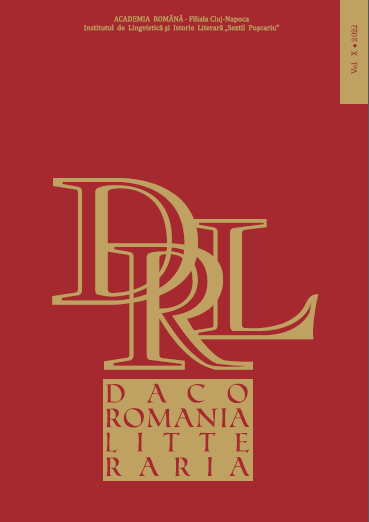Faire mémoire commune autour des silences. Fictions et mémoires des guerres de Yougoslavie chez Anilda Ibrahimi et Marica Bodrožić
Making common memory around silences. Fictions and memories of the wars in Yugoslavia by Anilda Ibrahimi and Marica Bodrožić
Author(s): Lola SinoimeriSubject(s): Language and Literature Studies, Studies of Literature, Theory of Literature, Sociology of Literature
Published by: Academia Română, Filiala Cluj-Napoca
Keywords: exile; common memory; Yugoslavia; silence; transnational literature;
Summary/Abstract: In this paper, I propose to examine Azade Seyhanʼs theory according to which transnational literatures have the power to make heard the voices that have been silenced by national history and memory, and thus to create a different kind of community. With this in mind, I analyse the narratives of the Yugoslav wars in two fictional novels written by Anilda Ibrahimi and Marica Bodrožić in the light of the concept of “common memory”. It seems that these novels, written by women with Balkan migrant backgrounds, seek not only to undo the national and very recent memory of the wars in Yugoslavia, but also to elaborate, by opposition, alternative memories of war and exile, around which it becomes possible to build community. I begin by analyzing the ways in which this common memory is elaborated in fiction: the two novels offer scenes of community reconstruction through the recounting and, above all, dialogue of the experiences of the exiled women, while respecting the flaws in their recollection. I then explore the extent to which these fictional narratives can function as models for the experience of writing and reading. Finally, the notion of horizon of expectation leads me to question the power of transnational literatures to create a common memory around silences: indeed, how can we ensure that these narratives of extreme violence are listened to and respected in a context of Western-centric horizon of expectation? With this in mind, I look at the ethical issues involved in representing war and the women who are its victims. To this end, I situate the publication of these novels in their specific context, that of the years following the wars in former Yugoslavia, and I examine the role of what Dragana Obradović calls the international gaze in the representations of the victims – their words and their silences – as well as the modes of narrative.
Journal: Dacoromania litteraria
- Issue Year: 10/2023
- Issue No: 1
- Page Range: 180-201
- Page Count: 22
- Language: French

